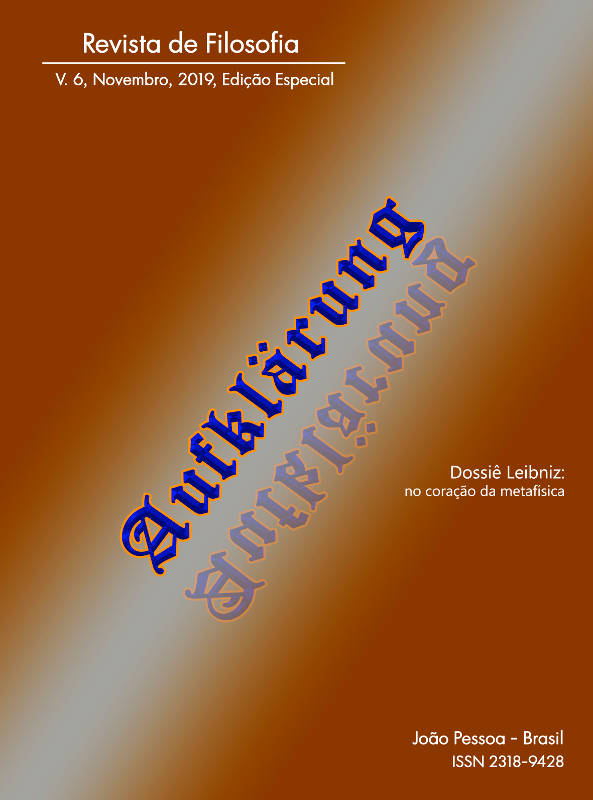Leibniz's fundamental question on the basis of the transcendental ideal of the Critique of Pure Reason
DOI:
https://doi.org/10.18012/arf.2019.49457Abstract
We seek to present the importance of Leibniz's theses on Kant's philosophy by examining how the two philosophers reflect on the demonstration of God's existence. To do so, we return in general lines to the Leibnizian arguments of his Principles of Nature and Grace (1714) to demonstrate the existence of God. Next, we recall how a similar argument can be found in pre-critical Kantian texts such as the Nova Dilucidatio (1755) and The Only Possible Argument for a Demonstration of the Existence of God (1762). Subsequently, we present (also in broad outline) some of the main reasons listed by the Critique of Pure Reason (1781) that seem to have convinced Kant to abandon the previous certainty about the effective validity of the pre-Critical argumentation ("Leibnizian" in some way). Finally, we note the permanence of this argument in the section of the Critique of Pure Reason – dedicated to the exposition of the genesis of the so-called transcendental ideal of pure reason.
Downloads
Additional Files
Published
How to Cite
Issue
Section
License
Journal general policy
1.This journal works under a Creative Commons License aplied to online journals. That icence can be read in the following link: Creative Commons Attribution 4.0 International (CC BY 4.0).
2.Accordingly to this License, a)the journal declares that authors hold the copyright of their articles without restrictions, and they can archieve them as post-print elsewhere. b)the journal allow the author(s) to retain publishing rights without restrictions.
Metadata Policy for information describing items in the repository
1. Anyone may access the metadata free of charge at anytime.
2.The metadata may be re-used in any medium without prior permission, even commercial purposes provided the OAI Identifier or a link to the original metadata record are given, under the terms of a CC BY license refered for the Journal.







































